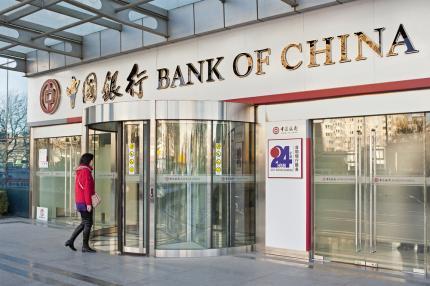Beijing at the Corner of Desperation and Panic

Monday, China Central Television, the state broadcaster, carried the “confession” of a weary Wang Xiaolu. The journalist from Caijing Magazine, a prominent financial publication, admitted to adding his “own subjective judgment” to information he obtained “through private channels” about the central government’s stock rescue plan.
Wang’s crime, in Beijing’s eyes, was to pen a July 20th article stating that the China Securities Regulatory Commission was considering halting intervention in the Chinese stock market. Since early July, the central government had been buying blue chip stocks in an effort to keep prices high.
Wang may have been premature—Beijing did not stop wide-scale intervention until early last week—but his article captured the disagreements inside Beijing’s policy circles. Authorities detained him August 25th and, according to state media, placed him under “criminal compulsory measures.”
China has just detained, according to its own account, 197 journalists and bloggers who reported or commented on the country’s recent troubles, from the Tianjin chemical explosion to the stock market plunge to the weakening currency to the crumbling economy.
And that’s not all. On Tuesday, CCTV broadcasted the confession of Liu Shufan, a securities regulator, and reported confessions of four senior officials of Citic Securities. Li Yifei, a leading hedge fund manager in China, is being questioned by police and, despite a denial from her husband, looks to be in custody. Beijing, it appears, is conducting a broad-based attack on China’s financial industry.
The Washington Post correctly called Wang’s confession “deeply problematic.” Beijing’s airing of a Cultural Revolution–style apology on television—something Chinese authorities have resorted to in the last couple years—suggests that China’s political system is fast regressing toward its Maoist origins.
Why should we be concerned about the fate of Wang Xiaolu? China’s problems, unfortunately, have a way of radiating out across the world.
Take its stock market bubble. At first glance, it is extraordinary that share prices rose more than 150 percent in less than a year, especially because the climb occurred during a period of falling earnings and slowing growth. On second glance, however, there is no mystery. The rise was almost entirely the result of a reckless Communist Party decision last year to inflate share values through nothing more than government cheerleading. That is why the fall in prices, which began June 15th, has Beijing leaders feeling especially vulnerable.
Predictably, Chinese officials are blaming just about everyone but themselves. For instance, last week President Xi Jinping picked on the Dalai Lama, charging him and his Tibetan community in India with committing “economic terrorism against the Chinese people and their economy.”
That’s ludicrous. Also implausible is Beijing in July blaming Morgan Stanley for spreading a “malicious remark” and causing the stock market rout for an “ulterior motive.” And it was not party propaganda hacks that targeted the New York–based investment bank. It was the well-regarded technocratic officials from the People’s Bank of China, the central bank, who leveled this grossly inappropriate charge.
And in August Beijing identified a new villain, this time the US Federal Reserve. And why is the Fed at fault for tanking China’s share markets? It is thinking of raising interest rates in America. The plan to move beyond essentially zero rates has been known for months and in fact had little or nothing to do with the fall of China’s artificially inflated stock values.
The wild allegations of Chinese officials are indications they are now flailing about. Beijing, we can see, is at the corner of desperation and panic.
OG Image: Asia PacificChinaChina EconomyStock MarketGlobal Economy
Asia PacificChinaChina EconomyStock MarketGlobal Economy
Gordon G. Chang's Blog
- Gordon G. Chang's profile
- 52 followers



